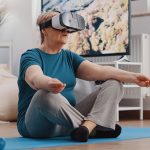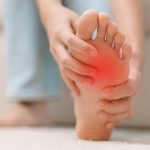-
The Push for Inclusive Cancer Care
People with intellectual or developmental disabilities face obstacles to receiving appropriate cancer screening and treatment. Advocates are calling on the health care system to meet their needs and increase access to care.
by Thomas Celona
-
Healthy Habits
Nature’s RemedyGinger can help reduce nausea and vomiting after chemotherapy.
by Anne Danahy
-
Healthy Habits
Going VirtualResearch finds virtual reality therapy can help reduce chronic pain in people with cancer.
by Erin O'Donnell
-
Q&A
The Voices of ‘Cancering’Oncologist Jennifer Young Pierce hosts a podcast that aims to demystify cancer and inspire people touched by the disease.
by Tyler Santora
-
Sound Advice
How does cancer treatment affect the eyes?Many treatments may cause eye-related side effects.
-
Sound Advice
How can I gain back weight following cancer treatment?A nutritional specialist can help ensure you're getting enough calories.
-
Sound Advice
How do you appeal an insurance denial?People who appeal denials are later approved at least half of the time.
-
Sensorimotor Training Helps Prevent Chemotherapy-induced Peripheral Neuropathy
The specialized balance training exercise can help keep the nervous system healthy during chemotherapy by giving it a workout.
by Sandra Gordon
-
Living With Your Loved One’s Prostate Cancer
Christine Ledbetter on the ways her husband’s prostate cancer affected their relationship and finding support as a caregiver.
by Christine Ledbetter
-
Sound Advice
Can Cancer Treatment Damage My Nails?Take precautions to help care for your nails and avoid infection during treatment.
Cancer Talk
Treatment Combination Improves Survival in EGFR-positive Lung Cancer
Adding chemotherapy to targeted therapy improves outcomes for people with advanced EGFR-positive non-small cell lung cancer.
by Sandra Gordon
Lessons From 20 Years Living With CancerMultiple myeloma survivor Jonathan Gluck reflects on uncertainty, and the scientific progress that has kept him living with cancer for more than two decades.
by Eric Fitzsimmons
The Enduring Importance of Cancer Disparities ResearchOpening session from AACR conference highlights how perseverance and adversity have informed cancer disparities research over the years.
by Eric Fitzsimmons
Most Cancer Survivors Don’t Meet Healthy Diet GoalsDespite research linking fruits and vegetables to cancer survival, many people do not change their eating habits after diagnosis.
by Darlene Dobkowski















